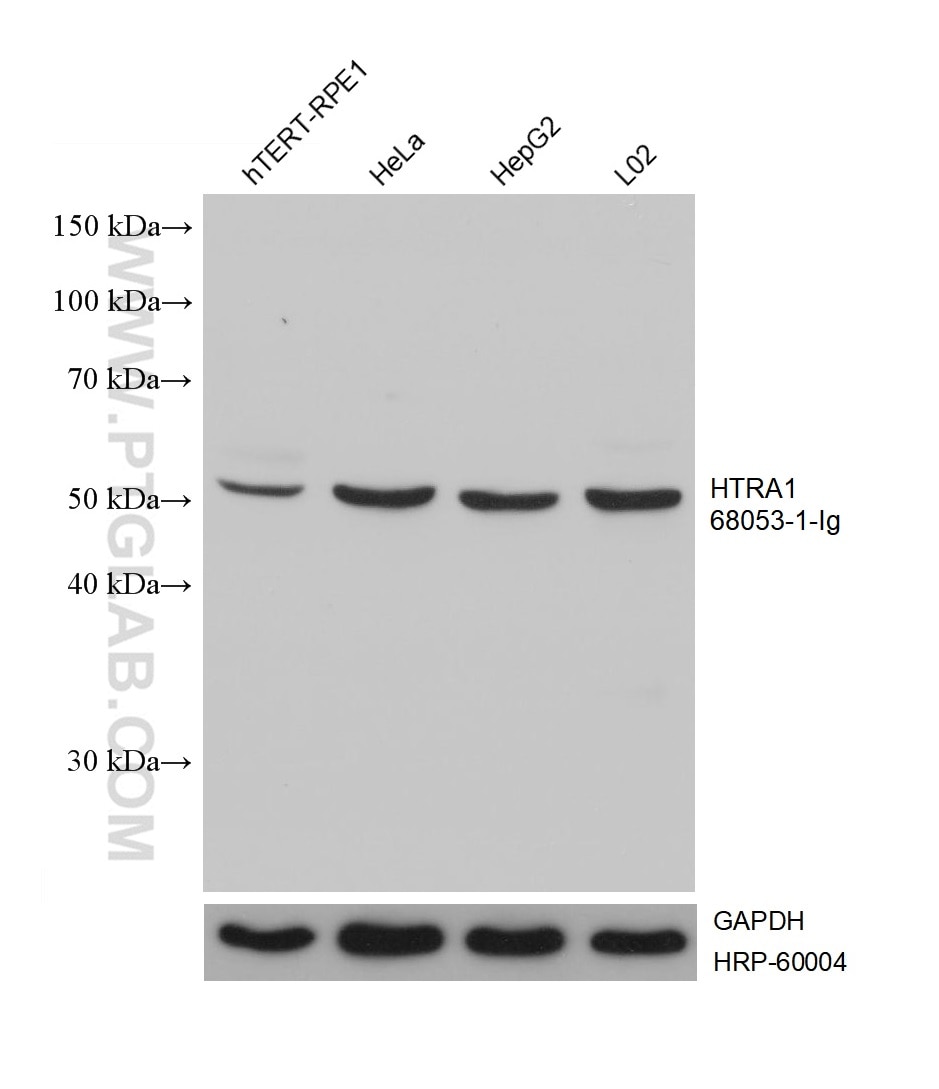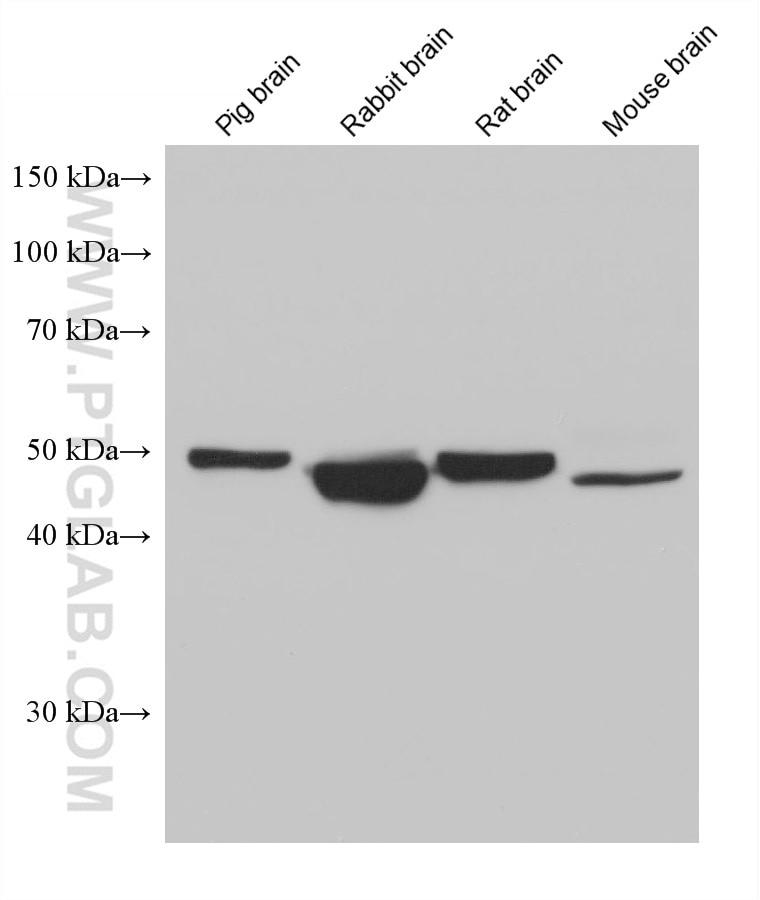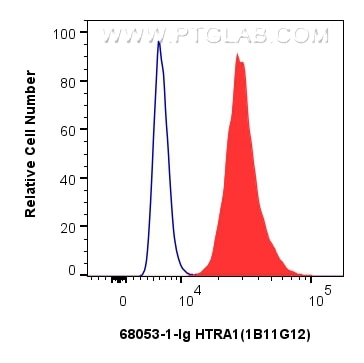HTRA1 Monoklonaler Antikörper
HTRA1 Monoklonal Antikörper für WB, Indirect ELISA
Wirt / Isotyp
Maus / IgG2a
Getestete Reaktivität
Hausschwein, human, Kaninchen, Maus, Ratte
Anwendung
WB, Indirect ELISA
Konjugation
Unkonjugiert
CloneNo.
1B11G12
Kat-Nr. : 68053-1-PBS
Synonyme
Geprüfte Anwendungen
Produktinformation
68053-1-PBS bindet in WB, Indirect ELISA HTRA1 und zeigt Reaktivität mit Hausschwein, human, Kaninchen, Maus, Ratten
| Getestete Reaktivität | Hausschwein, human, Kaninchen, Maus, Ratte |
| Wirt / Isotyp | Maus / IgG2a |
| Klonalität | Monoklonal |
| Typ | Antikörper |
| Immunogen | HTRA1 fusion protein Ag31204 |
| Vollständiger Name | HtrA serine peptidase 1 |
| Berechnetes Molekulargewicht | 51 kDa |
| Beobachtetes Molekulargewicht | 51 kDa |
| GenBank-Zugangsnummer | NM_002775 |
| Gene symbol | HTRA1 |
| Gene ID (NCBI) | 5654 |
| Konjugation | Unkonjugiert |
| Form | Liquid |
| Reinigungsmethode | Protein-A-Reinigung |
| Lagerungspuffer | PBS only |
| Lagerungsbedingungen | Store at -80°C. 20ul Größen enthalten 0,1% BSA. |
Hintergrundinformationen
HTRA1, also named as HTRA, PRSS11 and L56, belongs to the peptidase S1B family. It is a protease that regulates the availability of nsulin-like growth factors (IGFs) by cleaving IGF-binding proteins. HTRA1 represses signaling by TGF-beta family members. Variations in the promoter region of HTRA1 are the cause of susceptibility to age-related macular degeneration type 7 (ARMD7). Defects in HTRA1 are the cause of cerebral autosomal recessive arteriopathy with subcortical infarcts and leukoencephalopathy (CARASIL). The 50 kDa HTRA1 was found at varying levels in the majority samples tested, whereas the 42 kDa form of HTRA1 was identified in degenerated intervertebral disc protein samples(PMID:22556410). The short truncated monomer 37 kDa and dimer 74 kDa are proved (PMID:25329061). The antibody is specific to HTRA1.







